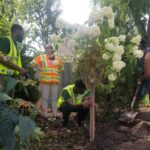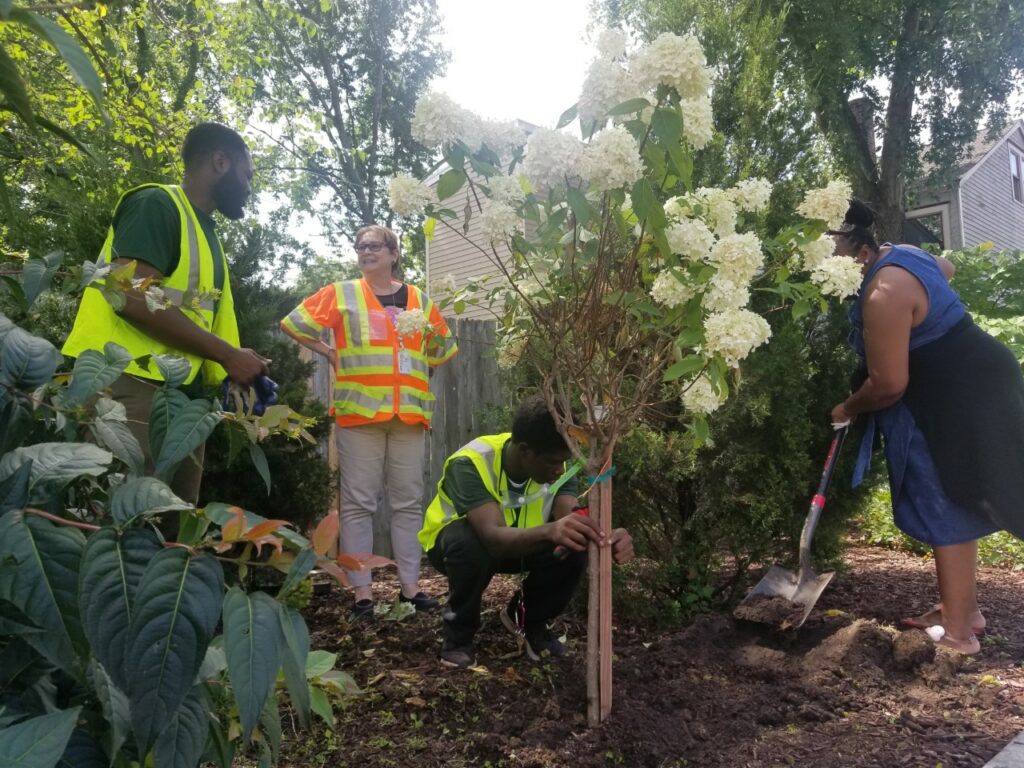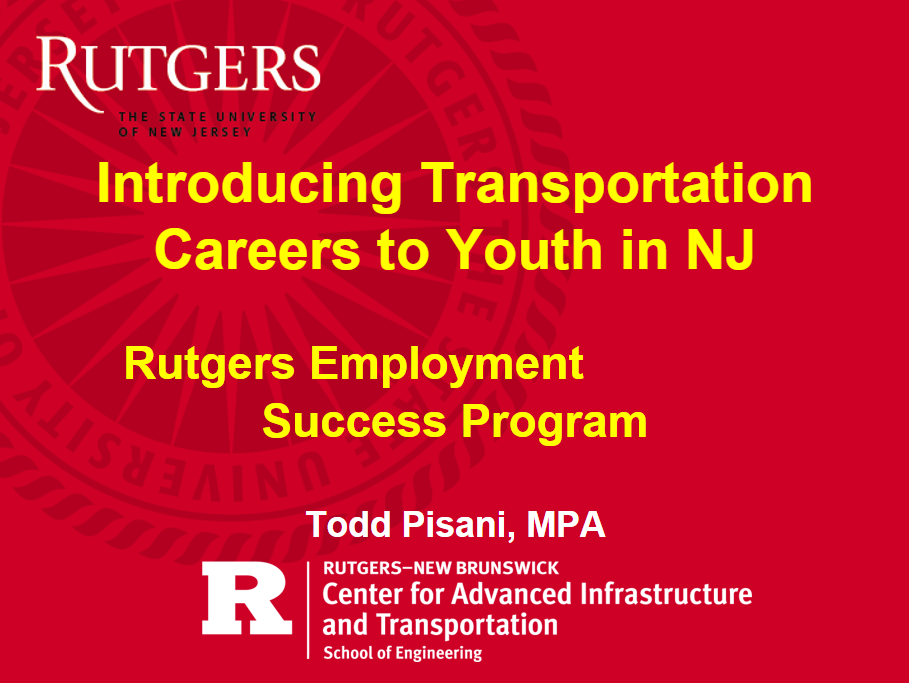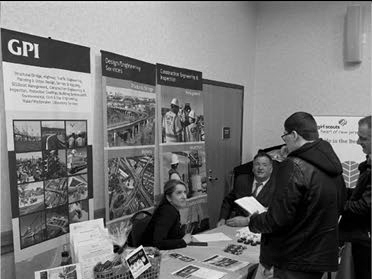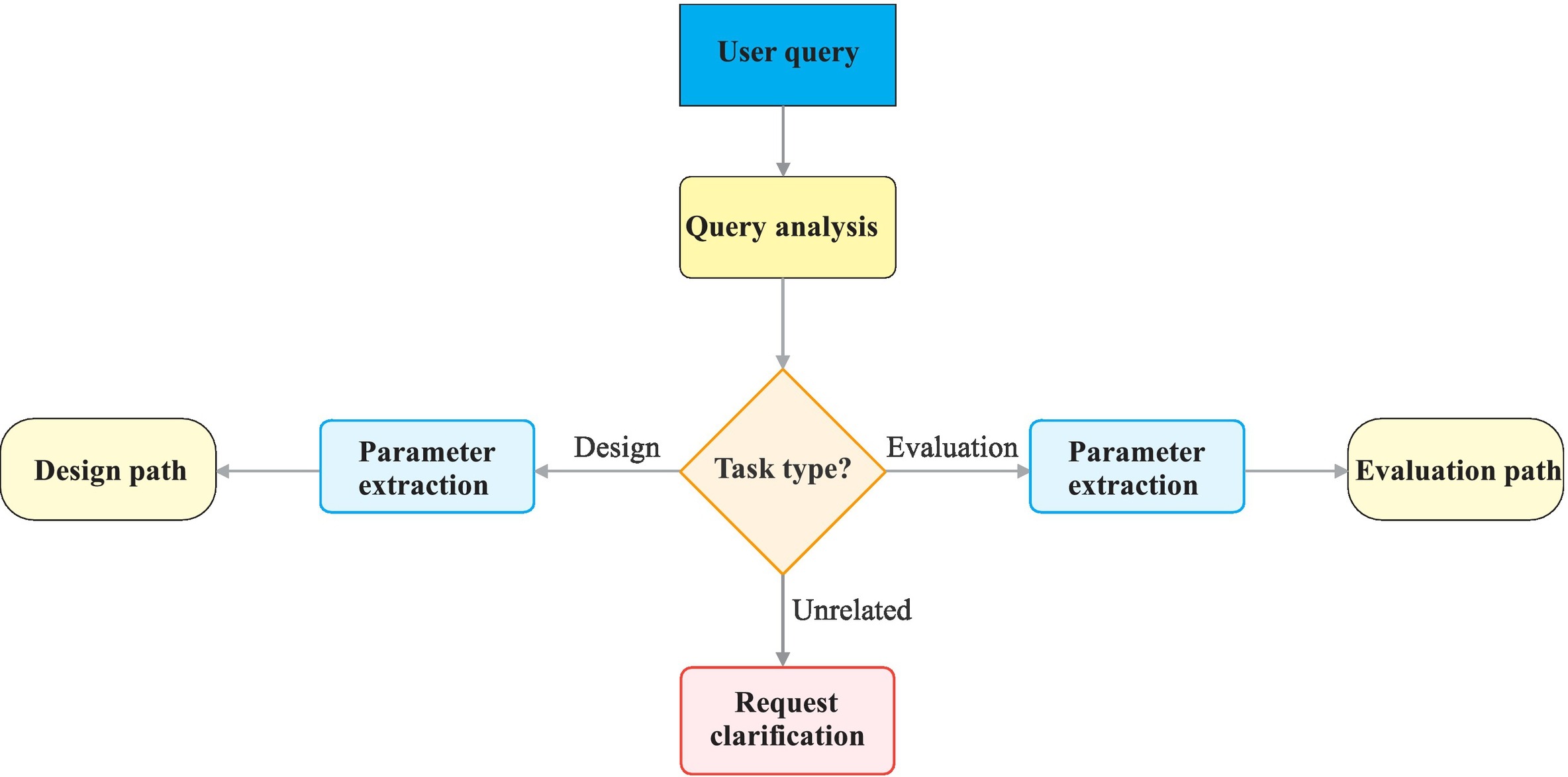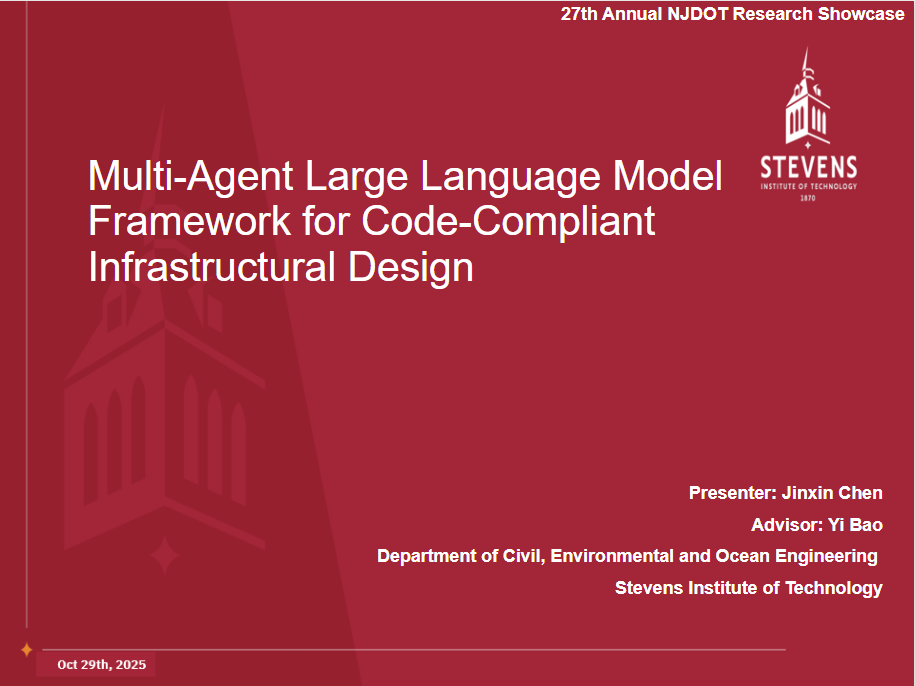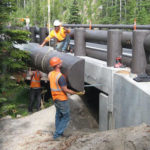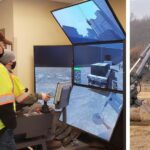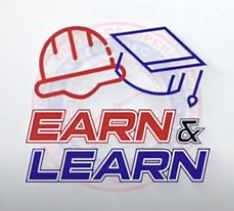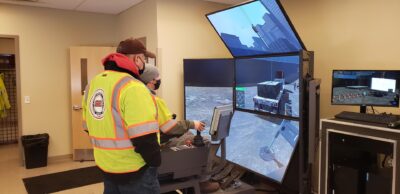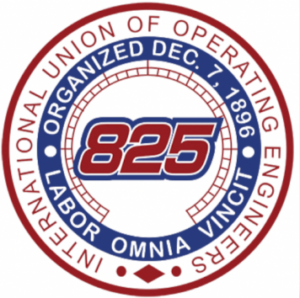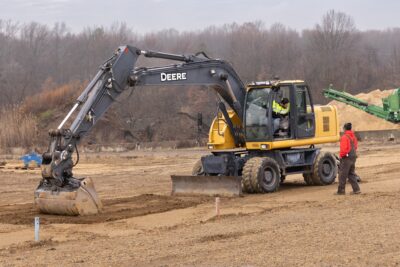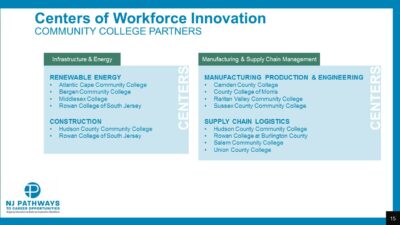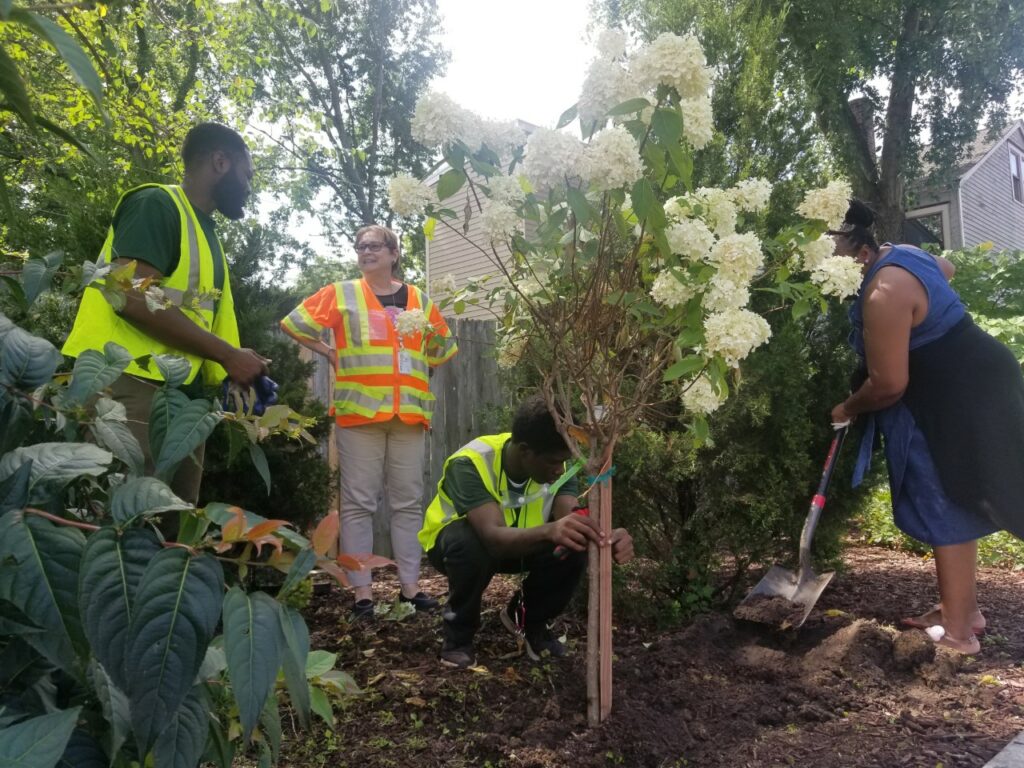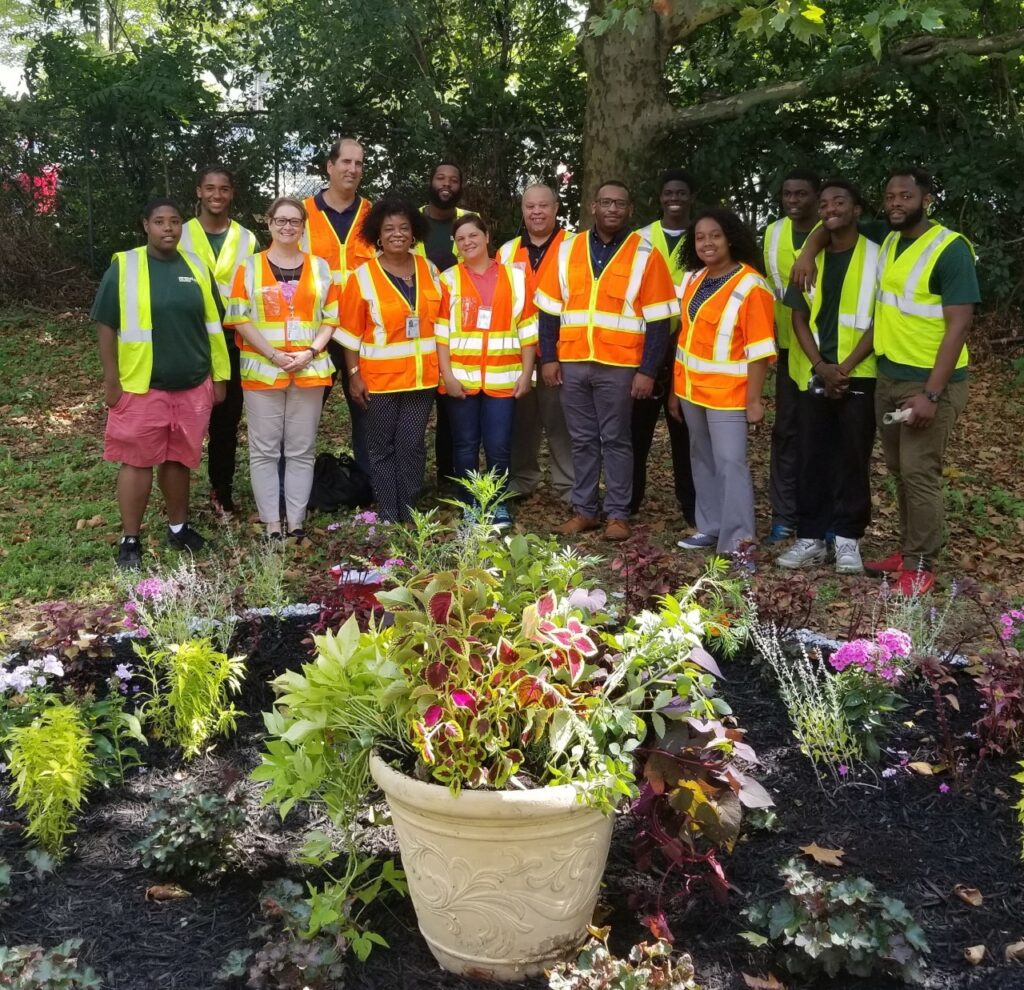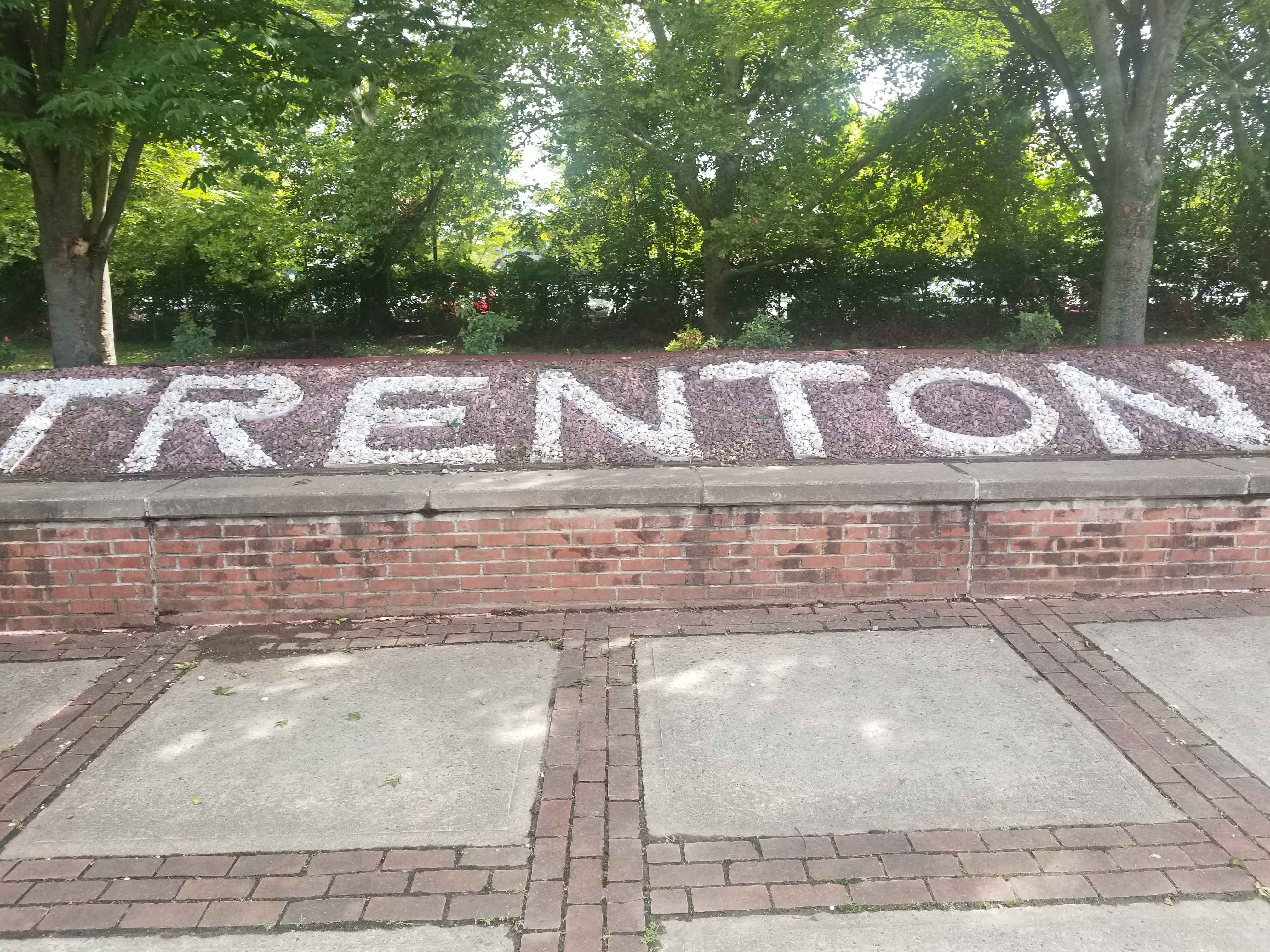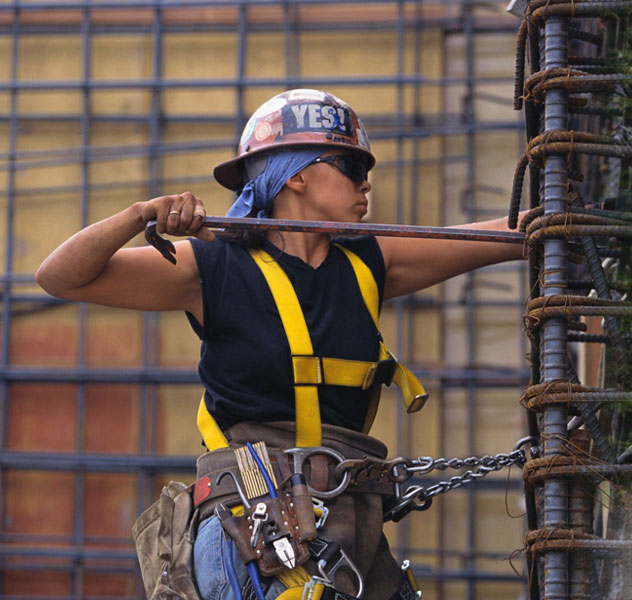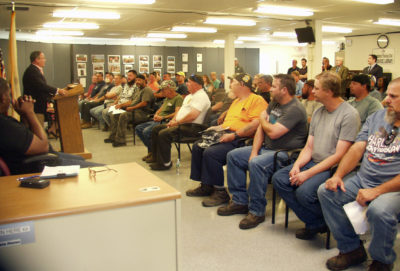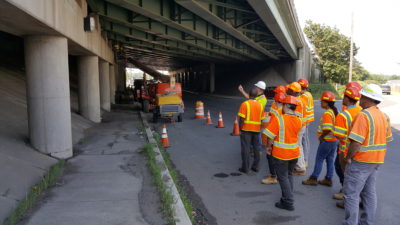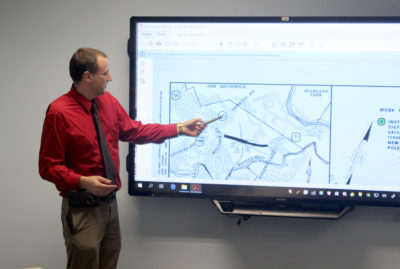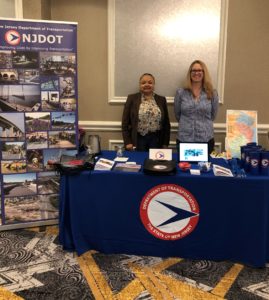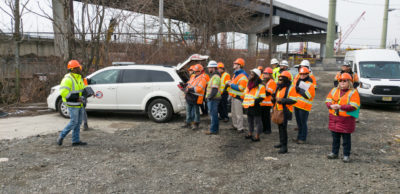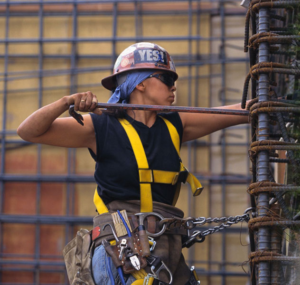
FHWA is promoting Strategic Workforce Development in highway maintenance, construction and operations.
Strategic Workforce Development, an FHWA Every Day Counts (EDC) Round 6 innovative initiative, anticipates collaboration between government agencies, trade organizations, private firms communities to prepare individuals for the construction workforce. The demand for workers in highway maintenance, construction and operations is growing, as is the demand for new skill sets required for work with emerging technologies. An important element of this initiative is the recruitment and retention of women and minorities in the construction sector. Through on-the-job training and supportive services program, NJDOT is exploring ways to work with contractors, contracting associations, and unions on shaping their future workforces, including programs aimed at increasing representation of women, minorities, and other disadvantaged populations in the construction and operations workforce.
We interviewed representatives from Oregon’s Department of Transportation (ODOT) and Bureau of Labor & Industries (BOLI), including Angela Crain (ODOT Civil Rights Manager), Cye Fink (ODOT Workforce Development and Civil Rights/EE Manager) and Larry Williams (BOLI, Operations and Policy Analyst). We sought to explore the distinct roles and partnership between the Oregon Department of Transportation (ODOT) and Oregon Bureau of Labor & Industries (BOLI) in funding, promoting, and providing technical assistance for on-the-job training programs, and pre-apprenticeship and apprenticeship programs, to support all workers including women, minorities and other disadvantaged individuals seeking to enter highway construction and other related fields.
Highway Construction Workforce Development Program
Q. Can you please share with us, based on your experience, your thoughts on what seems to be an overall lack of awareness– especially among women and minority persons – of jobs or careers in the highway construction industry?
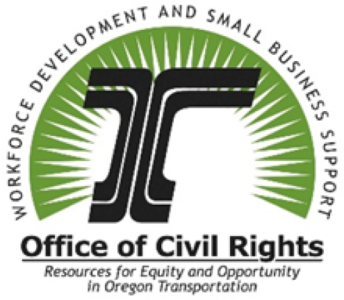
The ODOT Office of Civil Rights uses FHWA funding to support On the Job Training and Supportive Services.
The lack of awareness primarily stems from the school systems. For years, school guidance counselors have not promoted any path but college to most of their students. Highway construction is presented as a viable career only to those students who are not going on to college.
We work to raise awareness of careers in highway construction by disseminating information on these opportunities to school counselors and parents, as they are the support system for children. Careers in highway construction offer competitive paying jobs with family- supporting wages. We are trying to reach the students, beginning at the elementary school level because, unless students know someone who works in construction, they are mostly unaware of the career options in the field.
Some of the most successful linkages have been made by teachers who work in construction during the summer months and bring their experience back to the students. For example, they will use construction-related math curricula in the classroom. Shop classes, which were useful in helping students become familiar with tools and various trades, are rarely offered anymore due to budget cuts.
Information about the majority of our DOT programs is spread by word of mouth. We use the testimonials of individuals who have been through our programs, and we do a lot of outreach to communicate personal success stories of program participants. We also work with our partners, Building Trades Councils of Oregon, Akana, Oregon Tradeswomen, and other stakeholders and agencies, to get the word out. And we, of course, participate in career fairs, and high school Career and Technical Education programs to build the career pipeline. As far as encouraging Black, Indigenous and People of Color (BIPOC) and women candidates, our numbers are growing steadily each year with more starting and finishing our programs, but the ratio is still not where we want it to be.
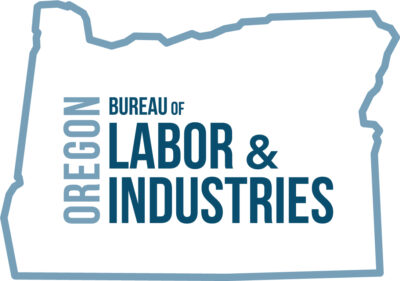
The Oregon Bureau of Labor & Industries is responsible for pre-pre-apprenticeship, pre-apprenticeship, and apprenticeship programs.
Q. We understand that 2009 legislation created Oregon’s Highway Construction Workforce Development Program (HCWDP) designed to diversify six heavy construction trades related to highway construction including carpenters and cement masons. This nationally recognized innovative initiative enables registered apprentices and those preparing to enter an apprenticeship in one of these trades to receive support in ten areas, including child care, travel expenses, lodging/meal allowance, tools, and PPE, among others. Are all of these efforts supported through HCWDP?
We use FHWA and state dollars to fund the program and follow federal regulations (23 CFR Part 230) that lay out what these 10 supportive services have to look like. In 2009, the Oregon legislature passed a bill that required ODOT to provide On-the-Job Training and workforce development supportive services, applying language from the federal regulations. Once this law was established there could be no question that the funding would be dedicated to the program rather than other priorities, such as road repair. Since this focus on workforce development is embedded in Oregon statute, ODOT has a pathway for consistent funding.
In 2016 we added hardship assistance to the list of available supports offered by HCWDP. Overall, we are working to support people in getting on a career track by offering supportive services that enable them to stay in the programs and eventually reach journey worker status, which offers meaningful long-term career development. The heavy highway trades are the focus of the program because the workers are mobile. Although there may be layoffs or projects end, as long as they stay in the system, participants will continue to have the opportunity to work on ODOT projects so they can graduate to journey worker status.
Q. ODOT and the BOLI have partnered to meet the goals of adding more diversity in hiring, increasing apprenticeship numbers and providing resources for training. What have been the key benefits of ODOT partnering with BOLI?
Our partnership with BOLI has been vital to our success. In Oregon, BOLI oversees apprenticeships and approves pre-apprenticeship programs. BOLI’s key value to HCWDP comes from their connections with their subcontractors who have experience in promoting and supporting workforce development in the highway construction trades, particularly among women and minorities. BOLI works with the contractors affiliated with the training programs, has authority over the contractors, and maintains a database to track the apprentices. When workers graduate to the journey worker level, they can work anywhere within the state and nationwide. This program offers meaningful, long-term career development.
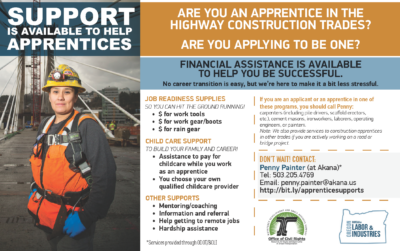
The ODOT/BOLI collaboration provides needed supports to help people stay in the apprenticeship programs.
There is no value in ODOT having its own apprenticeship-type programs when BOLI is providing them in alignment with US DOL. We at ODOT are embedding elements in the program including respectful workplaces, Green Dot, Riseup, and third party oversight through Portland State University, who are helping us with planning. Additionally, BOLI receives grants to target particular workforce areas; they leverage our resources at ODOT, while we simultaneously leverage their resources.
From the BOLI perspective, the partnership with ODOT allows BOLI to provide the support side to the apprenticeship programs. If you have the apprentices out there, you need to have the supports in place to help them succeed.
In most cases, BOLI has closed gaps in terms of completion rates for underrepresented demographic groups. For African American men, there has been improvement, but we want to close the gap further. There may be barriers that still need to be addressed. In addition, we have shown that the program works, as it is improving success rates, but it is only available to those apprentices associated with the highway construction trades. For example, we provide child care for a cement mason but not a brick mason. That is an area of concern for BOLI as they seek to determine ways to provide similar supports for other trades moving forward.
Apprenticeships and Pre-apprenticeships
Q. ODOT and BOLI have focused on improving opportunities for individuals who graduate from a pre-apprenticeship program to get more trade-specific training and improved access to registration into a highway trade apprenticeship program. What can you share about this work?
Apprenticeships in Oregon are regulated and supported by BOLI and offer on the job training and classroom training and typically require 2-5 years to complete and may be union-based or open shop. We focus on connecting pre-apprenticeships and apprenticeships.
Under the BOLI umbrella, there are apprenticeship, pre-apprenticeship, and pre-pre-apprenticeship programs. Pre-pre-apprenticeships help people overcome basic gaps to complete prerequisites needed for pre-apprenticeships, such as needing a driver’s license, GED or high school diploma. The pre-apprenticeship might provide skills training for those who need hours learning to use tools.
We have worked on direct entry with some of the trades so individuals can join an apprenticeship program without completing the ranking process or interview because the pre-apprenticeship has helped them prepare for the job, with some individuals also bringing work history that enables them to skip one or more levels of training. They have to complete the application and meet minimum qualifications that can be simply being 18 years old and having a high school diploma or GED, and in other cases, may require a minimum level of math proficiency, for example.
Q. Is this effort the same as, or part of, your On-the-Job Training (OJT)? Could you speak about your On-the-Job Training (OJT) program?
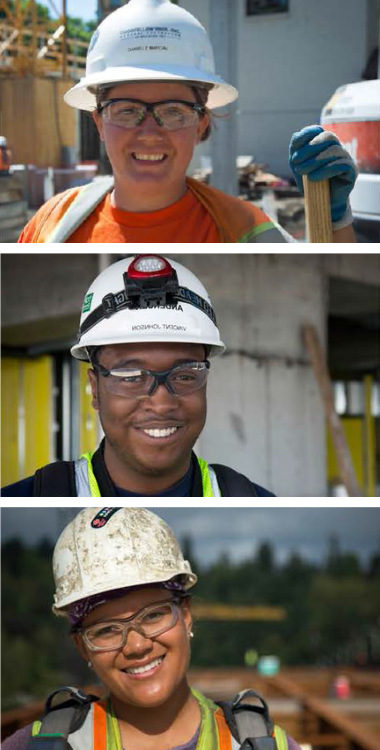
Supportive services can increase diversity in apprenticeship programs and the highway construction workforce.
On-the-Job Training/Supportive Services program funding from FHWA is internally directed to STEM/Engineering outreach, recruitment, and support. OJT is a very small piece of what we at ODOT do; only about two people every year go through this OJT training because most contractors are affiliated with a formal apprenticeship program.
ODOT and FHWA created OJT for candidates with no experience to offer them a chance to begin work with a contractor directly. As part of the federal regulations, OJT is provided through each project. If the contractor awarded the contract has no affiliation as a training agent themselves or they are not Oregon-based, and have no formal apprenticeship program, they can use one of our in-house training programs to fulfill the contractual requirement.
It is the small contractor or the first-time prime who would use this OJT option. We provide some incentives, including reimbursing $20/hour for every apprenticeship hour. An individual with no prior experience who applies off the street with that contractor must receive training. The contractor is paying journey worker level pay, and OJT does provide a means to recruit candidates from underrepresented groups. It’s a business choice that the contractor makes. The 2,000-hour OJT program trains for labor skills sets, and we also have a 6,000-hour construction project management program. This informal training is not tied to a path to journey worker status but there is the potential for the individual to have direct entry into the apprenticeship system after completing the OJT training.
Q. We know that reliable transportation and childcare are often cited as roadblocks to entry into the construction sector, particularly for women and minority candidates. Can you tell us how supportive services such as childcare and payment of travel costs help sustain apprentices?
Offering incentives and support services for apprentices is critical to their success. Childcare is a big issue. It’s not only single moms who face childcare challenges, but any single parent and/or underemployed families. Awareness of the HCWDP childcare support options has spread through word of mouth.
Work hours for highway construction are long. For example, apprentices may leave their house at 4:00 am to travel 40 miles to the worksite and work 10-hours. The challenges for us in supporting childcare include the costs and finding a provider that has capacity and offers their services in off-peak hours. ODOT/BOLI uses the state childcare provider certification system to identify providers. We give incentives to providers so that they can offer alternative hours to accommodate the long work days. We don’t have enough funds to subsidize all the childcare needed. Childcare is provided using a BOLI-determined sliding scale formula based on economic need and wage rate; the support level declines as the individuals progress through the system and earn higher wages.
The Pre-Apprenticeship Child Care Initiative (PACCI) program began as a pilot to provide childcare supports to pre-apprentices but is now a part of the general operation. Pre-apprenticeship programs, which are often 8-12 week courses in the classroom, may provide on-site child care. We are indirectly supporting these childcare opportunities.
Everything we do helps keep people on the path to journey work. With the regional wildfires displacing workers, we have been distributing hardship funds. Apprentices are eligible for this support. The transition between pre-apprenticeship and apprenticeships is accomplished through Joint Apprenticeship and Training Committees (JATCs) and we work with them to connect to the primes and contractors. There is usually a waiting list of apprentices available.
One difficult challenge that we are seeing is that primes are looking for apprentices with three to four years of experience. They have less incentive to pick up the first-year apprentices who will require more supervision and training. We are trying to address this issue and find ways to support these individuals within the system to acquire experience.
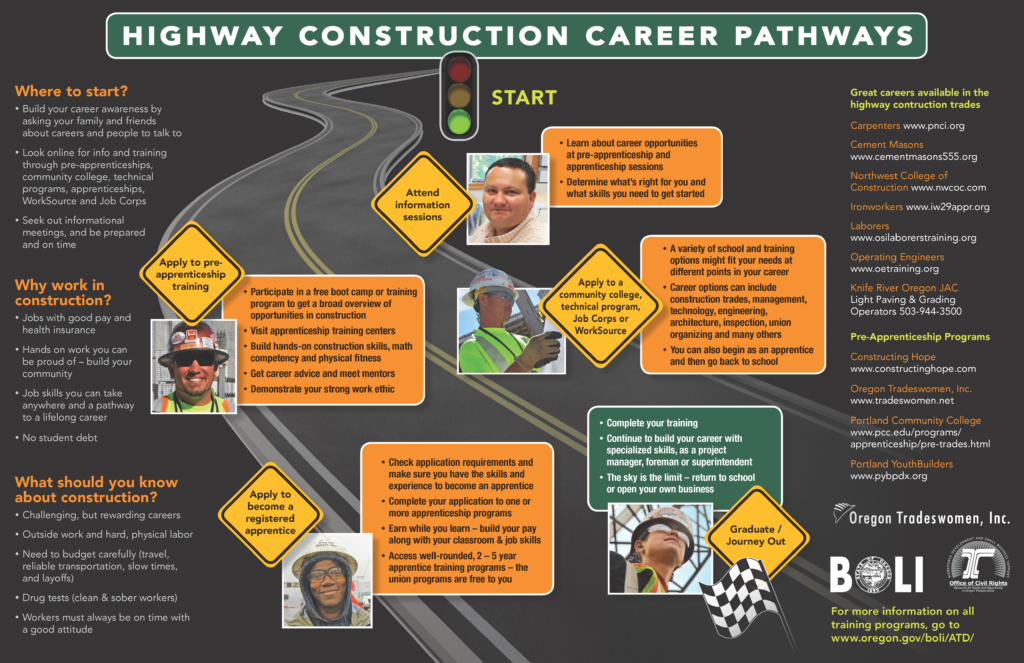
BOLI helps individuals find where to start on the path to a journeyworker position and, through its partners, provides support along the way.
Q. What can you share with us about the newer “Build your future. Build Oregon.” initiative and what special efforts are being undertaken to generate interest among underrepresented demographic groups?
ODOT receives federal and state funding for the workforce development program. Through an interagency agreement BOLI provides contract administration and ODOT holds BOLI accountable for the 10 required support areas of the program. BOLI then contracts out all these deliverables through a competitive process. We collaborate with BOLI on the subcontracting deliverables At any one time, BOLI might have six to eight subcontractors. One of the partners, Akana, embraced how to implement all these support services through one of these contracts, and they branded the supportive services piece as “Build your future. Build Oregon.” This effort has helped broadcast information about the workforce development program throughout Oregon and helps make more people aware of various program elements and assistance available.
Q. Are you aware of any model practices currently in use among community-based organizations to support women, minorities, and others looking at the construction trades?
Three Oregon-based organizations that provide support for underrepresented populations are: Oregon Tradeswomen which helps women build economic independence; Constructing Hope which is a pre-apprenticeship program in Portland; and Akana which is a Native American-owned, private sector, for-profit organization.
To increase awareness in careers in construction, Akana presents a podcast occasionally. Oregon Tradeswomen historically runs a women and trades fair with dedicated times for adults and for students. This is an opportunity for individuals to meet with people in the trades and talk about those trades and what careers paths they offer. (The fair has been on hiatus due to Covid-19.)
Q. How do you reach people who are no longer in school?
The average age for apprentices is 29 for males, and a little older for women. Some are seeking a second career, or maybe they have some construction experience, but it was limited to residential construction. To raise awareness of the HCWDP program, we work with various membership groups including: the National Association of Minority Contractors; Portland business development groups; Project Working Groups; Chambers of Commerce; veterans; advisory groups; and Tribal Employment Rights Ordinance programs on and near tribal reservations.
We have found that it is important to help people know where to start. We are working on simplifying the on-ramp to the whole system and providing a flow chart to help describe access to the system. We are looking forward to in-person recruitment events again after the last couple of years of virtual meetings.
Looking Ahead
Q. Do you have any concluding thoughts or advice on what strategies NJDOT can pursue to encourage more New Jerseyans to consider a career in the construction industry?
Seek and access the available FHWA funding, and direct it to your workforce development or OJT/Supportive Services programs. You can accomplish what we have in Oregon without legislative mandates. A lot of states work off their annual FHWA allocation but this would be only about $78,000 for Oregon – definitely not enough to build a workforce development program. Instead, work with your organization and your FHWA division field office to access other federal funding and more recently available Infrastructure and Investment Jobs Act (IIJA) dollars. Without these additional funds, we would not have adequate funding for all our programs and to grow the pipeline and help people move to journey worker status.
In terms of career progression opportunities beyond journey worker, participants could start their own business, maybe becoming a DBE or WBE, and graduate from a DBE program and become a contractor.
It is important to recognize that time is needed to measure success of initiatives like HCWDP, as participants will need two to six years to progress through the system. We have been at this for years and have dedicated partners. You need the sustained funding. There will be no big impact achieved if you can only give out a little bit of money each year to support efforts.
Resources
Akana
http://akana.us/
http://akana.us/odot-boli-main/odot-boli-apprentices/
http://akana.us/odot-boli-main/odot-boli-applicants/
Constructing Hope
https://www.constructinghope.org/
Federal Highway Administration On the Job Training and Supportive Services
https://www.fhwa.dot.gov/civilrights/programs/ojt.cfm
National Association of Minority Contractors
https://namcnational.org/
ODOT/BOLI Highway Construction Workforce Development Program Final Report IAA 30668 July 2015 – June 2017
https://www.oregon.gov/odot/Business/OCR/SiteAssets/Pages/Workforce-Development/ODOT_BOLI_Highway_Construction_Workforce_Development_Program_2017.pdf
Oregon State Building Trades Council
https://www.oregonbuildingtrades.com/
Oregon Tradeswomen
https://oregontradeswomen.org/
Real Help for Working Oregonians – The BOLI_ODOT Workforce Development Program
https://www.youtube.com/watch?v=2sNS5xV9Pa8




